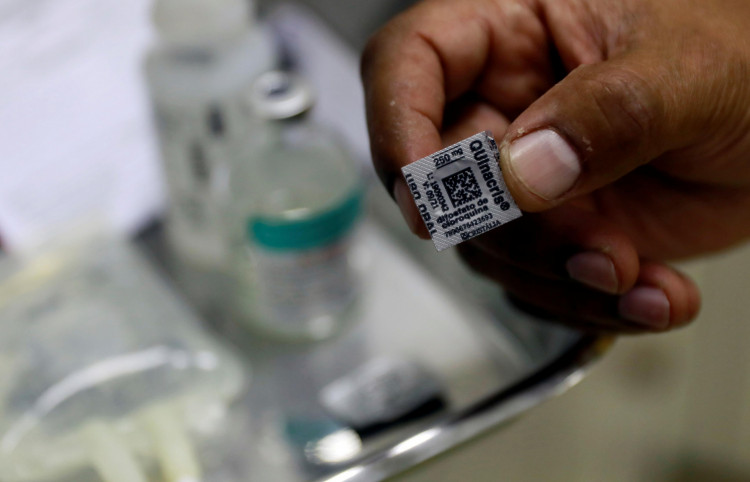The malaria vaccine United States President Donald Trump has promoted as a "game-changer" in the battle against the novel coronavirus once again failed to prove its effectiveness in patients suffering with COVID-19, according to a report published Thursday.
While the research published in the New England Journal of Medicine had some drawbacks, medical professionals confirmed that the use of hydroxycholoquine neither reduced the need for patients needing breathing aid, nor the risk of death.
The research released on Thursday is the most comprehensive to date to examine the medication, which has been authorized by the US and Drug Administration to treat malaria and other autoimmune sickness, as a therapy for Covi19.
Dr. Neil Schluger, head of Columbia's Pulmonary, Allergy and Critical Care Division, and his team researched over 1,300 patients admitted at New York-Presbyterian Hospital-Columbia University Irving Medical Centre for the virus.
The research found that 60 percent of those who were treated with hydroxychloroquine within 48 hours of being admitted were found to be more severely sick compared to those who were not given the vaccine.
Funded by the National Institutes of Health, the research was not a randomized clinical test, and its authors said that while the vaccine did not seem to help coronavirus patients, it was not observed to harm them either.
The new results come two weeks after consumers were cautioned by the Food and Drug Administration about chloroquine or hydroxychloroquine for treating Covid-19 outside a medical facility or formal clinical test environment.
The FDA disclosed that it became aware of reports of "severe heart rhythm issues" in patients with the virus who were given the malaria vaccine, mostly in combination with antibiotic azithromycin, commonly known as a Z-Pak.
According to Dr. Schluger, in a Reuters phone interview, they found no link between administering this vaccine and the risk of dying or being put in intubation. Among patients who took the hydroxychloroquine, 32.3 percent ended up requiring a ventilator or dying, compared to almost 15 percent of patients who didn't receive it.
Dr. Schluger pointed out that they do not believe at this point, based on evidence, that it is reasonable to administer the vaccine to patients. "We don't see the rationale for doing that."
The FDA has since warned that hydroxychloroquine may cause fatal heart problems, and should be used only by medical experts conducting supervised clinical tests or in hospitals where patients' conditions can be carefully examined.






